Summary
Renewables met 42.5% of all-island electricity demand during November 2023:
- 37.1% wind
- 3.1% hydro
- 1.7% biomass/biogas
- 0.6% solar
Although it was an unremarkable month for wind power, we can report two significant events for the Irish grid during November 2023:
- On November 28, we saw one of the first instances of batteries on the Irish grid working in concert to help meet peak electricity demand.
- On November 8, for a few hours in the early morning, renewable generation exceeded demand at that time for only the third time.
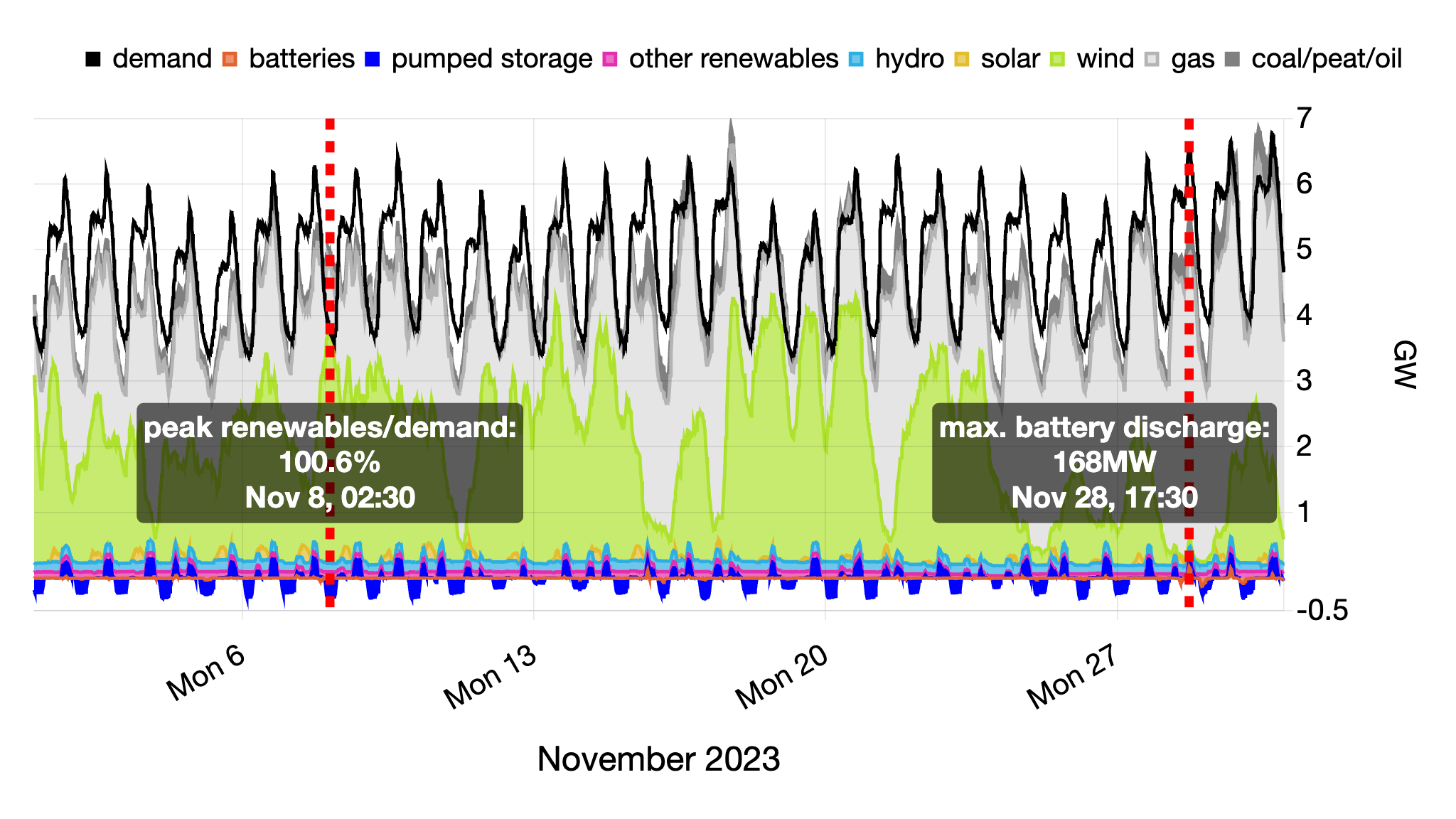 Source: Green Collective; EirGrid; SEMO
Source: Green Collective; EirGrid; SEMO
New and notable
Battery storage now helping meet peak demand
Earlier this year, we reported that although the Irish grid now has 459MW of battery storage capacity this battery storage was not yet being used to help renewables meet peak demand.
As of November 2023, we can report that this is finally beginning to happen: on November 27, during a period of exceptionally low wind generation, battery discharge reached 168MW during that evening's peak load (approx. 2.5% of demand at that time). Below is a chart of those plants with significant discharge during that time; Poolbeg's BESS accounted for approx. 74MW of the 168MW peak.
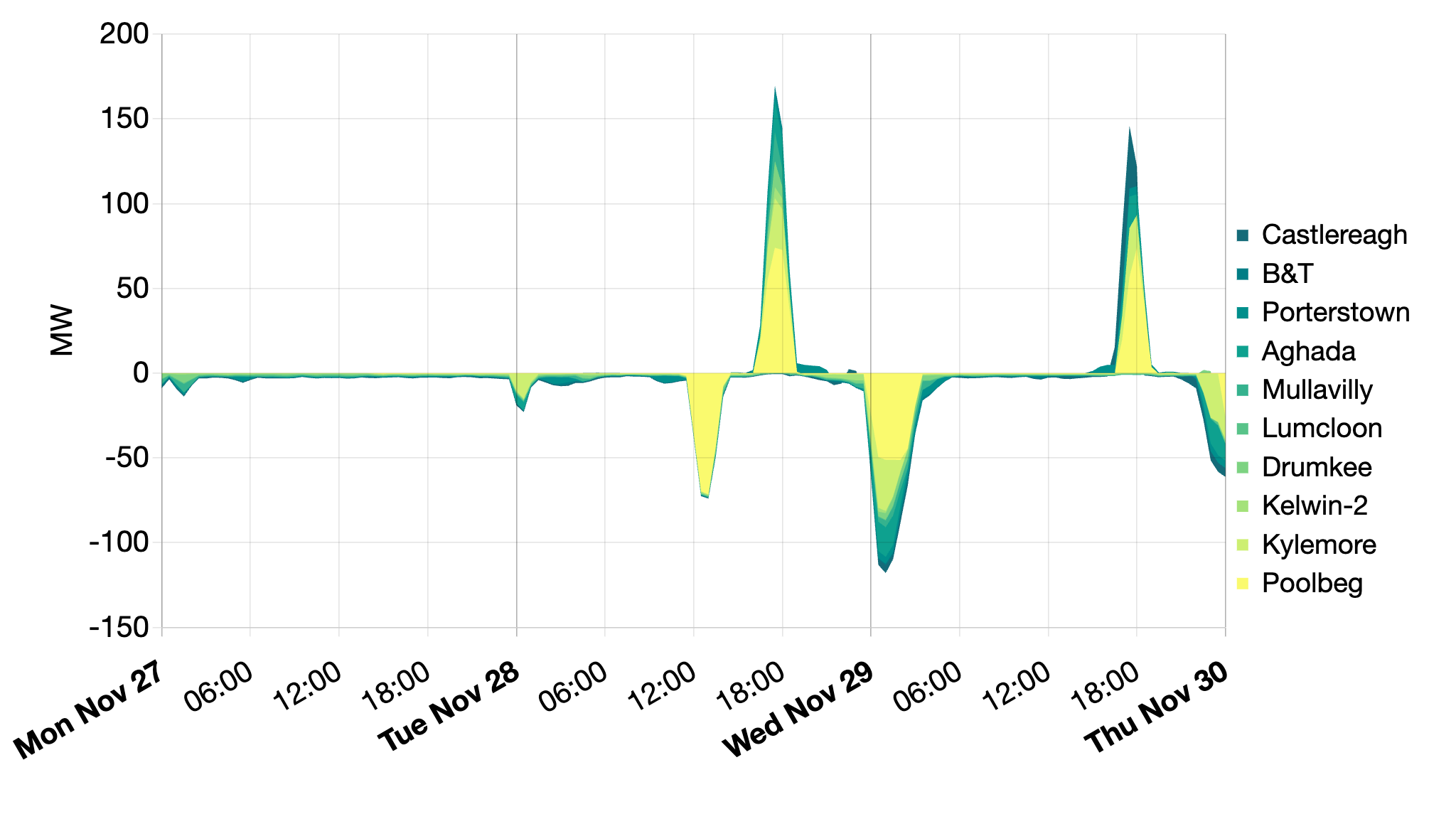 Per-plant battery storage discharge, November 27-29 2023.
Per-plant battery storage discharge, November 27-29 2023.
Source: Green Collective; SEMO
Renewable generation exceeds demand
For a couple of hours on the morning of November 8, peaking at 100.6% around 2.30am, renewable generation (wind, hydro, biomass/biogas, and solar) exceeded electricity demand. This is only the third time since we started tracking generation in detail (April 2023) that we've been able to report this occurrence.
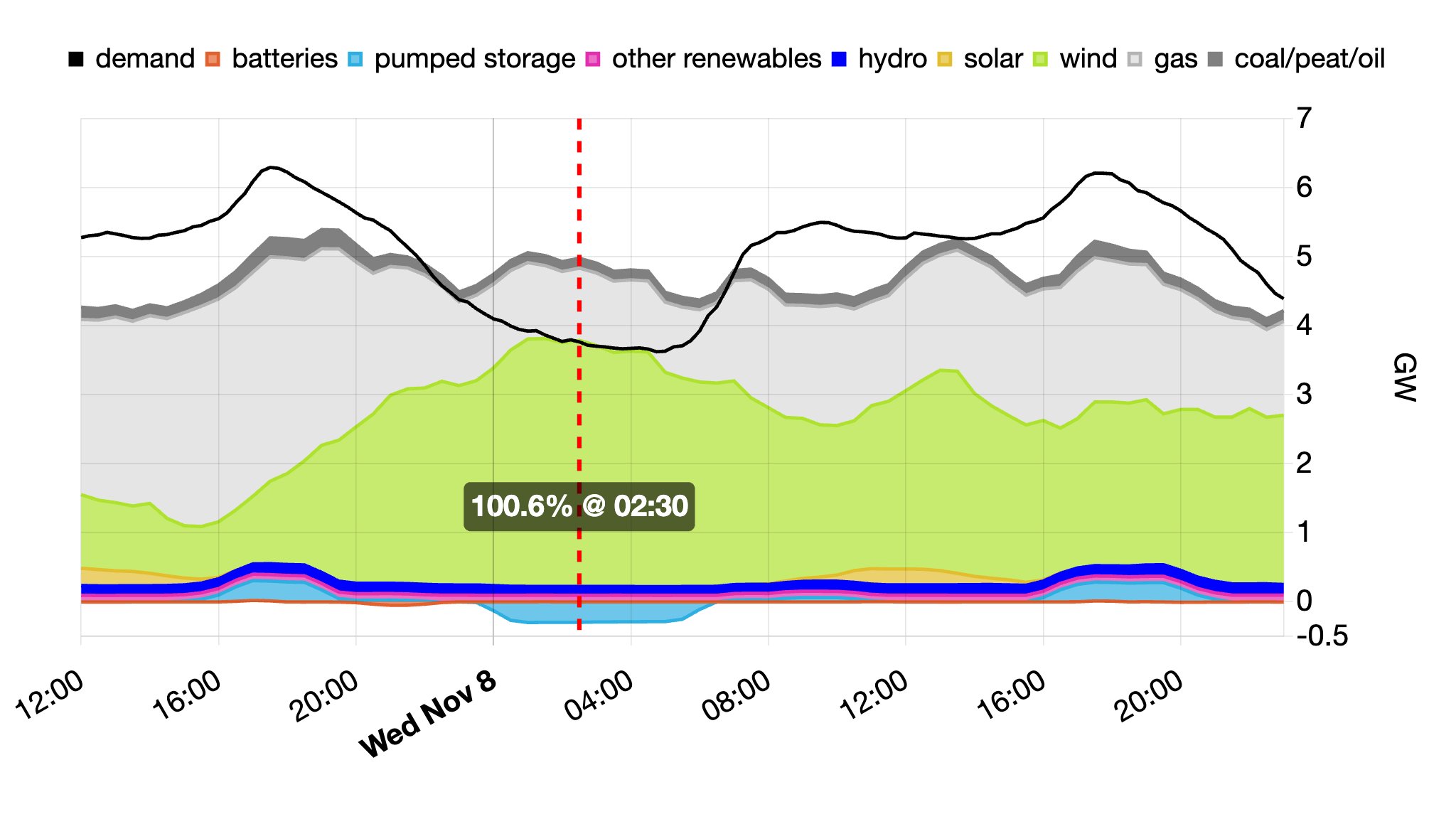 Source: Green Collective; EirGrid
Source: Green Collective; EirGrid
Other news
Extremely low fossil fuel generation
With just 28.6GWh (equivalent to 24.4% of that day's demand) generated from fossil fuels, we believe November 18 saw the lowest ever fossil fuel generation (and, by extension, some of the lowest ever CO2 emissions) for a November day.
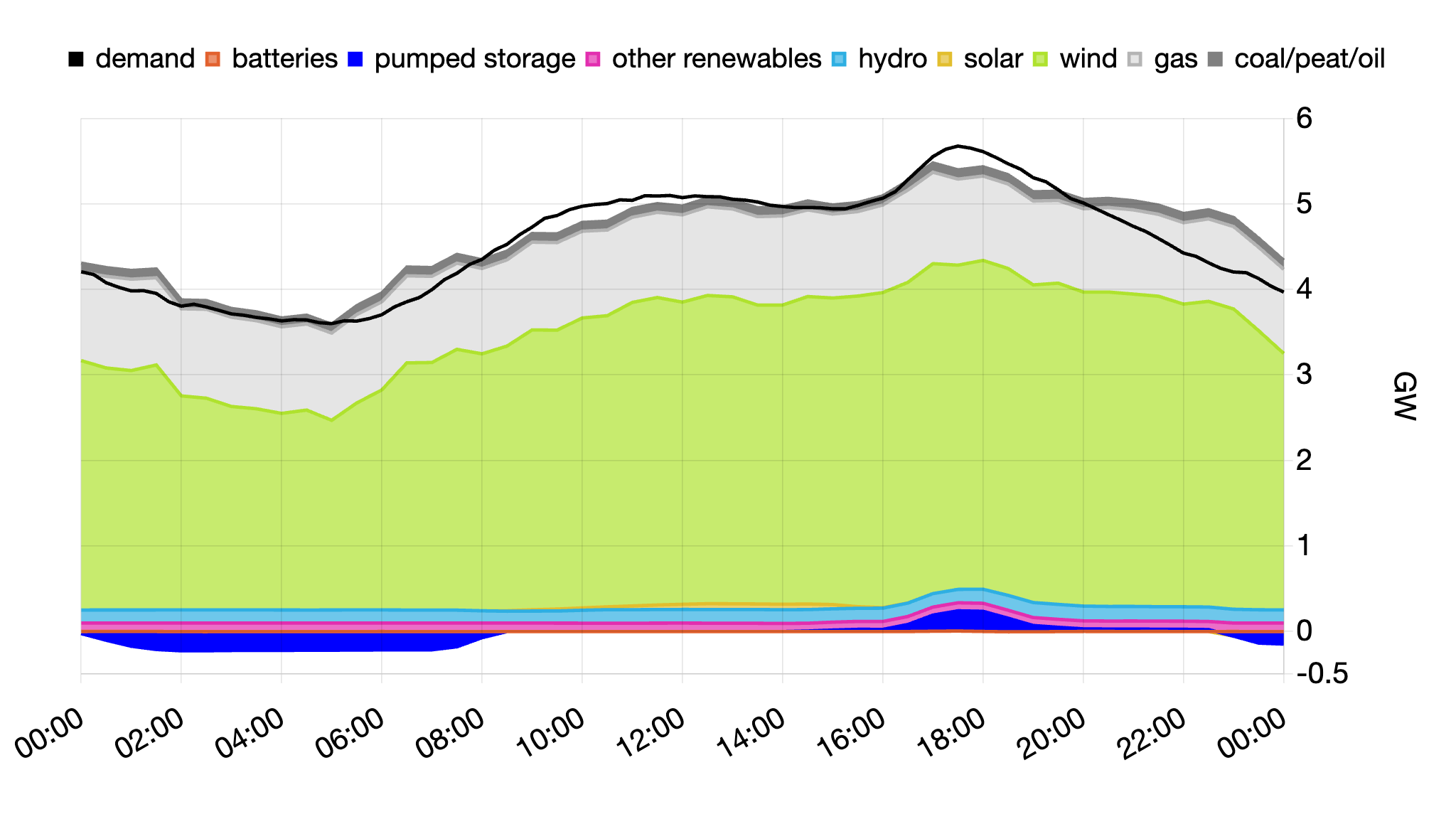 Source: Green Collective; EirGrid
Source: Green Collective; EirGrid
Wind power year-on-year comparisons
With approx. 1.3TWh of power generated from wind (equivalent to approx. 37% of electricity demand), both generation and the proportion of demand met by wind were significantly down from 2022. However, the general upwards trend in both figures continued, despite rising demand. Below is a chart of ten years of November wind generation vs. demand.
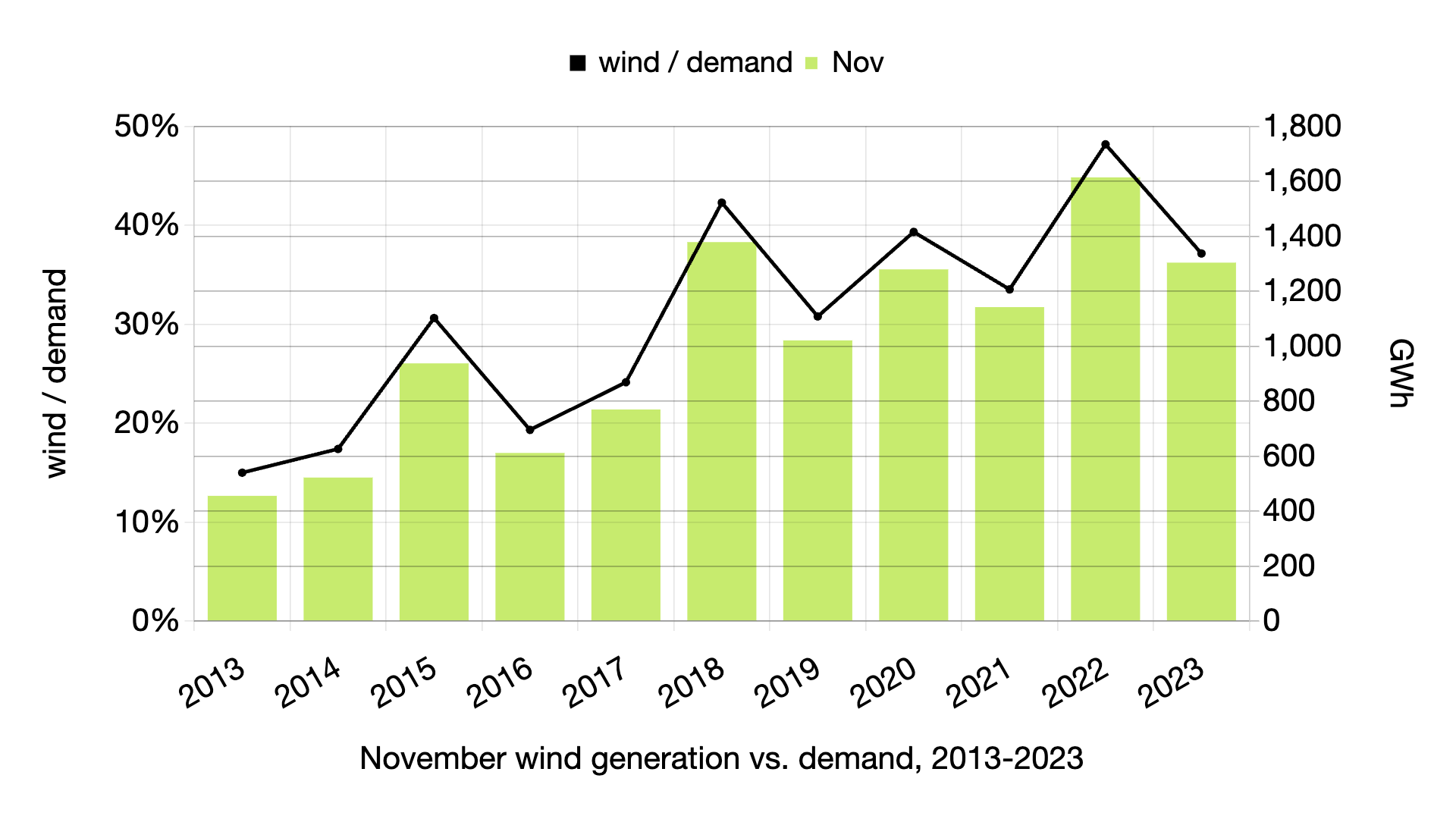 Source: Green Collective; EirGrid
Source: Green Collective; EirGrid